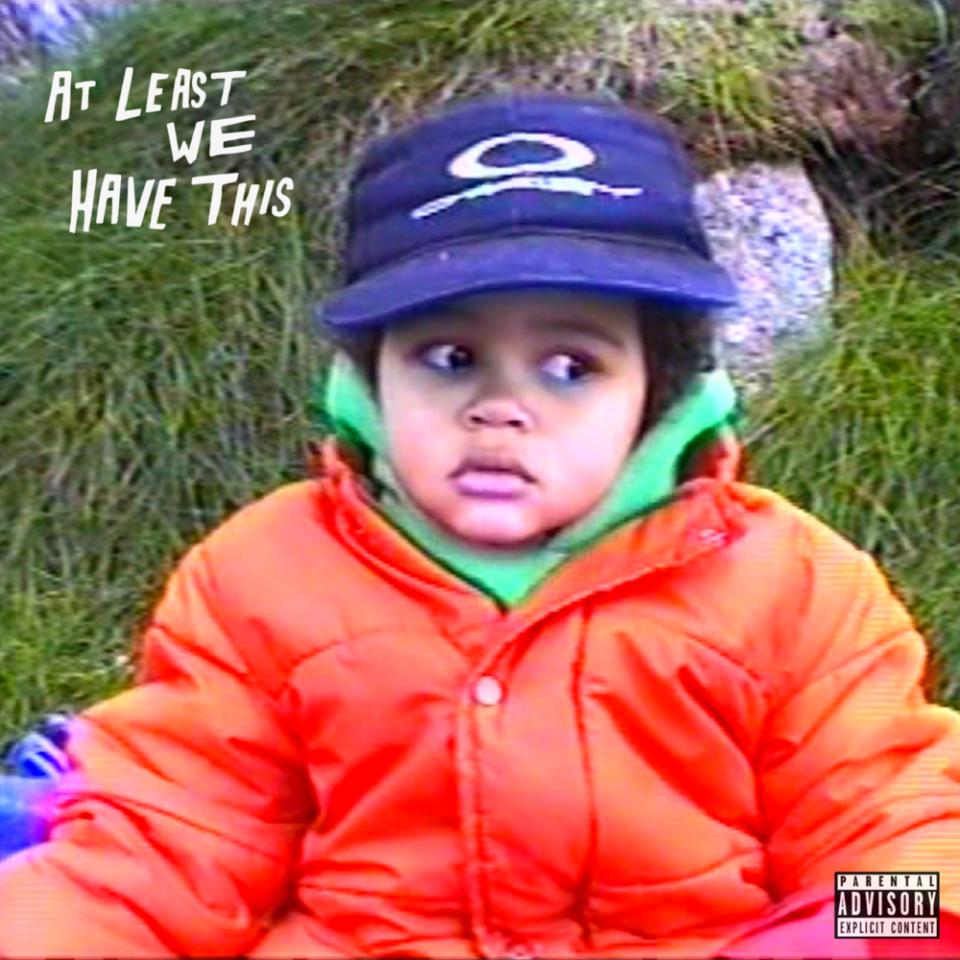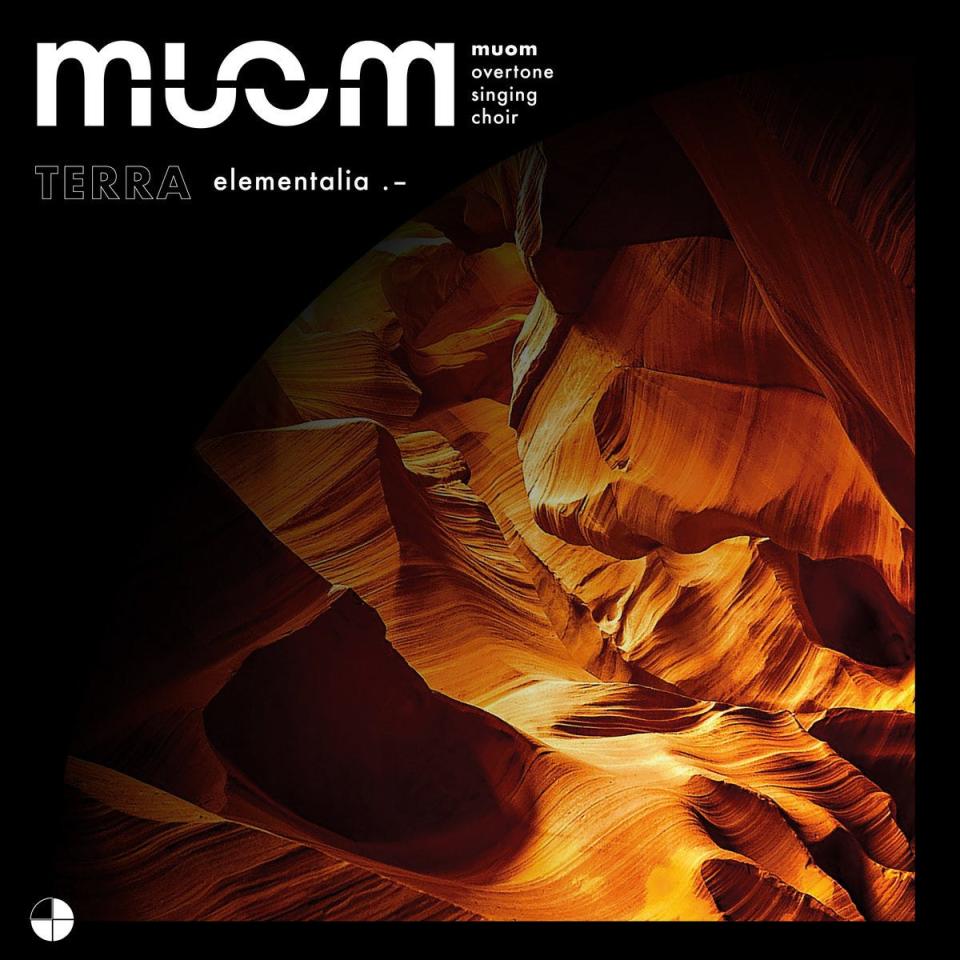Adele's '30' may be flawed, but her voice is perfect
- Oops!Something went wrong.Please try again later.
- Oops!Something went wrong.Please try again later.
Just in time for the holidays, Adele unleashes a “30” that will have fans sobbing into 2022 and beyond.
Frankly, it’s obvious stuff: Adele gets her heart broken and works through loneliness and bitterness to get back on track. The lyrics are competent, if not profound, and the arrangements are satisfying, if not adventurous.
Of course, what sells “30” is Adele’s extraordinary vocals, as powerful as any in modern pop music, restrained enough to avoid showboating, but transcendent in the ability to elevate a mundane situation into magic.

She and her producers often follow the foolproof formula of piano-based power ballads, as on the hit single “Easy on Me,” which smashed streaming records upon release. (Note: Those who buy "30" at Target will get a bonus version of "Easy on Me" featuring country singer Chris Stapleton.)
But there’s also an assortment of modest surprises, such as the flowery-yet-dignified Judy Garland-ish opener “Strangers by Nature” and the intoxicating cocktail-bar strains of “All Night Parking,” which samples the late jazz pianist Erroll Garner as Adele gets lost in the allure of fresh love.
Meanwhile, producers Shellback and Max Martin give “Can I Get It” an addictive pop context (complete with whistling in the chorus) for a wanton Adele to declare, “All I want is for you to be mine.” And her main go-to producer, Greg Kurstin, is on board to tap an inspiring message of empowerment for “Oh My God,” and build a mesmerizing retro-sultry groove for “My Little Love,” where a vulnerable Adele is joined by her son, Angelo, in a frank-but-loving dialogue between a hurt mom and her child.
More reviews: ABBA's 'Voyage' shows the band's journey isn't over
Do check your cynicism at the door, however. As dazzling as Adele’s delivery is, the heavy polish on these songs can seem manipulative, and the protracted length of some tracks (five of them stretch well beyond 6 minutes each) feels like an effort to magnify the drama, from the addled “I Drink Wine” to the overcooked “To Be Loved.”
But listen to “30” with an open heart, and Adele will bring it home.
Adele
"30"
Rating: 4 (out of 5)
++++++++++
Zola proves labels wrong with 'The Kid'
Albums about the horrors of the music industry are almost as old as popular music itself, and they often come off as a little off-putting because many of them are from successful artists who’ve made their fortunes and they’re self-indulgently complaining about their jobs to fans who will never be as fortunate as they are.
But Zola’s “The Kid” has a fresher, and more compelling, take as the San Francisco singer-songwriter unravels the process of merely attempting to find a place in the music business. She battles through the baffling attempts to repackage her and dismiss her art form, and ultimately it doesn’t work out for anybody.

Not only does the experience prove to be an artistic gut-check, it results in something of an existential crisis.
“I don’t think that I have more I can offer,” she sings in a sashaying drowse of lush defiance reminiscent of Lorde or Billie Eilish on opening track “After Winter.” She’s more pointed on “Glitter and Gold”: “If I moved to Southern California/Smoke weed on your couch and write a song for Coca-Cola/If I’m not there where you have people over/Will I miss something big?” She follows with the refrain “Maybe get to know me?”
Her soulful voice on these keyboard-based songs is gorgeous, whether she’s issuing threats like, “I’m ready to call you out” in the escalating tension of “In the Morning” or struggling in the disconnect of manipulation against the hypnotic roll of “Old Stuff”: “I’m not looking for a deal/I just want to make you feel.”
Once she shifts her vocals into French in the beguiling dance closer “Pavement,” it’s clear that her would-be business partners missed out on a good thing.
Zola is relatable and endearing, like that friendly co-worker who finally has her fill and blows up.
And you couldn’t be happier for her.
Zola
"The Kid"
Rating: 4 (out of 5)
++++++++++
Gary Barlow's Christmas is dreamy
British singer Gary Barlow drops a late entry into the bag of new Christmas albums for the season, and his “The Dream of Christmas” is more hit than miss.
Barlow is lead vocalist for the mega-successful U.K. pop act Take That (which formed more than 30 years ago), a soloist, an actor and an all-around celebrity who, now 50, jumps into the holiday-music fray with a good sense of what works.

He nails the crowd-pleasers, hamming it up in the buoyant swing of a big-band version of “Sleigh Ride” and sailing over the joyous “Winter Wonderland” with an impossibly upbeat delivery and support from the English vocal trio The Puppini Sisters. Meanwhile, the title-track opener is a Disney-level, string-washed fantasy about the time when “children’s eyes light up again.”
Also, Barlow avoids being a complete cliché by pulling it back elsewhere, dovetailing into the sway of the chorus of “Wonderful Christmastime,” dishing out sweet simplicity on “Merry Christmas Everyone” and even offering an effective downcast number with “The Colder It Feels” featuring guest cellist Sheku Kanneh-Mason.
Barlow occasionally gets stuck in the treacle, ineffectively employing low-key swagger in a clunky attempt to cure depression with a holiday (“Come on Christmas”) and lacking oomph for the piano ballad “My Dear Acquaintance.” Plus, his duet with English actress Sheridan Smith on “How Christmas Is Supposed To Be” doesn’t live up to the song’s brassy arrangement.
Yet just as every present under the tree isn’t a spectacular gift, not every song on “The Dream of Christmas” is a knockout. And that’s OK.
Gary Barlow
"The Dream of Christmas"
Rating: 3-1/2 (out of 5)
++++++++++
John Thayer keeps listeners guessing
John Thayer’s sound is a complex one on his new “Supermundane.”
The New York City audio engineer/percussionist creates songs that are sometimes ambient, sometimes lively and frequently experimental – “fourth world” music that fuses his skills with percussion and electronica into a blend of primitive and futuristic tones.
Some of what you might hear on “Supermundane” could be background music at a supermarket, some might suit the mood at a tiki bar, and some could work on the soundtrack for a sci-fi or horror film. Much of it is minimalistic and/or experimental and/or freeform.

It might seem improvised, but “Supermundane” is carefully calculated to come across that way. And it’s a challenging listen (don’t get comfortable), but these soundscapes also make sense in how they defy expectations.
For example, the track “Akaku” sounds like a splash of Polynesian exotica that eventually transforms into a shimmering drone. There’s also a cinematic lift in the bird-punctuated “Kites” as the song sheds its weighty elements to soar into the stratosphere, and “Being” is a brightly fashioned splash of percussion that speeds up and fades as Thayer adds electronic layers.
“Supermundane” also features a pair of epic tracks clocking in at more than 7 minutes each. The first, “Kamo,” is saturated with resonance that ebbs and flows with a precise, mesmerizing chill. The second, “Veil,” closes out “Supermundane” with sweeping pulses and long notes that hypnotize with their calm insistence, taking listeners off into the ether.
That’s a fitting final destination for an album that keeps its audience ungrounded while it teases where it’s going.
John Thayer
"Supermundane"
Rating: 3-1/2 (out of 5)
++++++++++
Ducrot is authentic on 'Make Believe'
Ireland’s Cian Ducrot was on his way to be a classical flautist when he made a dramatic pivot to pursue life as a guitar-toting pop-rock singer-songwriter.
It’s a crowded field, but you never know when you’ll be the next Ed Sheeran or John Mayer.
Ducrot, 24, does it reasonably well on his debut EP, “Make Believe.” He doesn’t venture far from formula, so his songs dwell on various stages of relationships, and the music is never more than a step away from status quo. Yet he’s imaginative within those restraints, and his voice has character plus his hooks are periodically great.

He glides through romanticism on the “Make Believe” title track with bliss-filled lyrics such as, “It never made sense to me the way she moves perfectly, so maybe it’s make believe.” Yet heartbreak generally suits him better, as on “Know Me Again,” a melancholy duet with Canadian singer Cate featuring lines like, “Now that you know me, you choose not to love me at all” and, “I wish that you didn’t know me so that you would want to know me again.”
There’s also his crushing realization on the tender, piano-backed “Crocodiles”: “I guess that I’ve just messed it up … again.”
Perhaps most effective of all is the moving “Hello Gorgeous,” a bittersweet bit of encouragement and support for someone who is on the losing end of a one-way relationship: “You close your eyes while he turns your heart to stone.”
The EP is also sprinkled with lesser tracks that are forgotten as soon as they end. However, Ducrot makes a solid pitch for himself overall with thoughtful lyrics and heartfelt vocal delivery.
And if it doesn’t work out, he always has his flute.
Cian Ducrot
"Make Believe"
Rating: 3-1/2 (out of 5)
++++++++++
Tatar's tasty 'Seconds' fits the menu
Those who associate “family music” (i.e. “children’s music”) with instrumentation like kazoos and tambourines should give Ben Tatar and the Tatar Tots a spin.
The act’s new food-themed “Seconds” is a far cry from the DIY efforts of many artists in the family-music genre. In fact, there are 33 musicians on the album as Ben Tatar and the Tatar Tots churn through a whirlwind of styles.

Tatar, an elementary school music teacher and professional musician in Chicago, follows 2014’s “Food!” with a robust “Seconds” blazing with horns, all the parts of a rock band plus the likes of glockenspiel and banjo. With guest help from the LowDown Brass Band and the funk trio Spare Parts, “Seconds” dishes out solid takes on the New Orleans sound, big band, yacht rock and ska – with conviction, too, rather than with hodgepodge disconnection.
Also, Tatar’s voice and the other featured vocalists on “Seconds” are serviceable, and the hooks are plentiful, from the celebration of “Peanut Butter!” to the riverboat joy “Sweet Nectarine.”
The lyrics? They’re kid’s stuff, for better and worse. Targeted to kids ages 4 to 8, the words are more sophisticated than what toddlers might grasp, but perhaps too tedious for adult ears, balancing themes of healthy eating with indulgent eating and overeating, flipping from basic jokes (“Can You Write a Song About Broccoli?”) to random cravings (“Oh Cookie”) with occasional unexpected moments, such as “Thinking of Pizza’s” implied comparison of pizza to an anti-anxiety drug, plus an amusing tiff between a buffet manager and customers who can’t find a table on "Back to the Buffet."
Meanwhile, the pace of “Seconds” is slow enough to keep from overstimulating younger listeners but lively enough to keep others from nodding off with its roundly impressive arrangements.
The album isn’t for everyone, of course, but for many families “Seconds” will hit the spot.
Ben Tatar and the Tatar Tots
"Seconds"
Rating: 3-1/2 (out of 5)
++++++++++
Hien's 'Bloom' is modest achievement
Hien’s new EP “Bloom” is the aural equivalent of a mint. It’s light, a little sweet and refreshing, though it doesn’t last long and has little impact beyond a few minutes of complacency after it’s gone.
But Hien, a Vietnamese-Hungarian pop singer based in Brooklyn, does work noble objectives into this deceptively airy and atmospheric three-song EP. The concoction is an introspective exploration of place and connection, learning from the past and looking ahead … plus, there’s even a love song in the surreal mix.

Hien is an elusive performer, soft-voiced and prone to gently talk as well as gently sing, merging her vocals into billowing electronic layers with undercurrents of R&B.
On the track “Family” she sounds both computerized and intimate as she sails through the rhythmic hustle and vibration-rubbed compressed electricity that creates comfort akin to a weighted blanket. Her lyrics are checklists, issued as short declaratives to evoke a bigger picture: “Butterfly, beautiful, tragedy/Privilege, coverage, therapy/Government, policies, separate/Recognize, enemies, liberate.”
The title track is more direct – both more radio-friendly as an electro-pop song and more directly meaningful lyric-wise as Hien weaves in and out of a semi-whisper to sing of self-worth and moving on to thrive in a new environment: “No matter where you go, believe and let it show,” she sings, later adding, “Spring is in the air/Your wings will take you anywhere.”
Final track “Slow” is most accessible of all, both as an arrangement and as a thematic concept, as Hien assumes the role of an ex-lover to explore what went wrong and what went right in a relationship and where to go from here.
The modest collection of songs then humbly ends, leaving behind a calm after-aura if not much else.
Hien
"Bloom"
Rating: 3-1/2 (out of 5)
++++++++++
'Electric Christmas' needs explaining
Many only know the Eagles of Death Metal as the band playing at the Bataclan in Paris on Nov. 13, 2015, when terrorists attacked the show, killing about 90 of those in attendance as well as an additional 40 or so others around the city. So, explanation may be in order for the new “EODM Presents: A Boots Electric Christmas.”
First, “Eagles of Death Metal” is a joke name: Although EODM is a rock band, the group doesn’t play death metal and it doesn’t sound like the Eagles. Second, Queens of the Stone Age frontman Josh Homme is in EODM, but his role is as drummer, and he often doesn’t even tour with the band. Third, Jesse Hughes is the EODM vocalist/frontman, though when he performs as a soloist, he goes by the name Boots Electric.

Thus it’s worth noting that “EODM Presents: A Boots Electric Christmas” is a legitimate Christmas EP with a twist, with Hughes performing as the offbeat Boots Electric.
The handling of these tracks – including classics such as “God Rest Ye Merry Gentlemen,” “O Holy Night,” “Little Drummer Boy” and “O Little Town of Bethlehem” as well as a cover of Jackie DeShannon’s hit “Put a Little Love in Your Heart” – is fairly straightforward, not in a conventional rock style, but not quite traditional.
Hughes/Electric sings rather like a man affecting an extroverted choirboy. His voice isn’t perfect, but it’s earnest and seemingly sincere (even if it’s a put on). The music is discrete, featuring keyboards and perhaps some percussion or a flute, and one of the EP’s two versions of “O Holy Night” is even an a cappella rendition.
Ultimately, this humble holiday release won’t be a favorite in the traditionalist mainstream, and it also won’t satisfy those looking for an edgier rock sound.
But it’s a charming and sweet, if eccentric, alternative to the usual fare this time of year.
Eagles of Death Metal
"EODM Presents: A Boots Electric Christmas"
Rating: 3-1/2 (out of 5)
++++++++++
Career-stalled Ama Lou musters EP
Recording artists have responded in divergent ways to the pandemic. Some have embraced the unexpected opportunity to take an extended break, some have withdrawn into isolation to write more introspective material, and others have made do with new ways to reach audiences, such as streaming.
North London singer-songwriter Ama Lou has been especially frustrated by the pandemic. She released the breakout single “TBC” in 2016, when she was still a teenager. She followed with her debut EP, 2019’s “Ama, Who?”, when she was just 20, and then COVID-19 stalled her budding career.

However, with her debut full-length album still delayed, the now-22 Ama Lou has at least managed to put together a new EP teaser, aptly titled “At Least We Have This.”
It’s a four-track reminder of her stylish, British-informed modern R&B and perhaps a sign of more to come.
“At Least We Have This” leads off with the previously released single “Trust Nobody,” its low-slung vibe and alt-electro-pop inflections cushioning Ama Lou’s sleek vocal as she firmly pushes back at being dominated and embraces her uneasiness: “We just don’t blend in the same way you found me,” she shrugs.
The atmosphere subsequently lifts for the dancehall-kissed “Same Old Ways,” where the inviting groove accents the exemplary vocal arrangements (ranging from subtle soul singing to understated rap) as Ama Lou (“I’m blessed, but hazy”) half-threatens with, “When I said do it, yeah, I meant today.” The EP then pivots into the uplifting jam “All I Can Say,” underscored by wobbly bass and open-hearted lines like, “You’re the only one that makes it right.”
“At Least We Have This” comes full circle at the end with “Talk Quiet,” where Ama Lou again submerges herself in conflict and menace similar to the opening track, her dulcet voice reinforcing her cool attitude.
It’s an attitude we all deserve, with or without a pandemic.
Ama Lou
"At Least We Have This"
Rating: 4 (out of 5)
++++++++++
Shane Gillis cuts both ways
Whatever good or harm “cancel culture” might have done recently, the movement is really just a continuation of something that has always existed. People say things other people don’t like, and they pay the consequences.
Naturally comics are among the most prone to damage from pushback: Their art form is typically meant to make the audience uncomfortable and challenge the conventions of polite society. Is Dave Chappelle right to stand by his work despite the reactions of those he thinks don’t understand his context, or is he too oblivious to understand the danger his words create for those who don’t get his context? You’ll have to decide that for yourself.

So it goes with Shane Gillis, whose recent Netflix special, “Live in Austin,” is now out on audio. Gillis was “cancelled” in 2019, cut from the show just days after he was announced as a new cast member on “SNL” – ditched because it was discovered he used slurs in his old material.
“Live in Austin” shows Gillis to be affable and smart – a guy who grew up with a Fox-News-loving dad in a red part of Pennsylvania and now lives in New York with a bounty of left-wing friends. His comedy cuts both ways: He paints folks on the right as hot-headed and childish and folks on the left as humorless and unforgiving.
He’s the quintessential woke-ish straight white guy who can find humor in anything, be it the University of Alabama’s motives to desegregate its football team (“we’ll be less racist if it means we can win”) or Donald Trump’s brazen personal attacks on other Republicans. He also steers into an innovative bit about helping his sister kick heroin and another about a Special Olympics “hug line” between the athletes and servers from Hooters.
His delivery always feels good-natured (never angry or strident), and some of the best moments come when his audience grows noticeably uncomfortable and he reels them back in.
Listeners may squirm, but many will find “Live in Austin” worth the discomfort.
Shane Gillis
"Live in Austin"
Rating: 3-1/2 (out of 5)
++++++++++
This captures the Paris we imagine
Travelers often pre-hype a destination to unrealistic expectations that can lead to disappointment. You won’t spot a major star around every corner in Los Angeles, for example, and Rio de Janeiro isn’t a nonstop party.
Likewise, the streets of Paris aren’t lined with world-class jazz performers filling the air with otherworldly romance: As in many other cities, you’re more likely to casually hear modern popular music than anything else.

But “Acoustic Paris” keeps the fantasy alive with its compilation of “chansons” (classically cool vocal/lyric-driven songs such as what you might hear in a cocktail lounge) and “manouche” tracks (hot jazz/swing music).
The carefully aggregated collection of 10 songs is smooth, starting with American YouTube sensation Pomplamoose’s beguiling spin through “Je Me Sais Fait Tout Petit.”
Also conjuring an atmosphere of savoir-faire: Marseille-native vocalist/pianist is the essence of suave against the brushed rhythm of “Un Bateau Une Ile,” Paris-native/Japan-based Clementine is sublime alongside the percussion-driven “Quel Temps Fait-it a Paris?” and Frenchman Alain Schneider closes out the collection with a sleek cover of Italian folk star Angelo Branduardi’s “Va Ou Le Vent Te Mene.” Meanwhile, Antoine Villotreix (“Des Fleurs”) and Scotch & Sofa (“Tu Es Le Roi”) add a little spice to the chanson, the former with a more complicated arrangement, and the latter with an extra singer (guest Fabien Boeuf) and ghostly backing vocals.
“Acoustic Paris” is balanced with well-placed bursts of lively swing – instrumental songs from San Francisco’s Baguette Quartette (“Je Viens Vers Toi”), Dutch guitarist Lollo Meier (“La Route de Paris”) and Israeli ensemble Swing de Gitanes (“J’attendrai”) plus a festive, up-tempo ‘Papoum Song” from French group Coco Briaval.
This collection may not be based in Paris reality, yet, oddly enough, that just makes it seem more French.
various acts
"Acoustic Paris"
Rating: 4 (out of 5)
++++++++++
Wheeler challenges with 'This Is Now'
Listening to Christina Wheeler’s “That Was Then, This Is Now” might feel like a confrontational experience.
The Los Angeles-native artist’s QChord-based music is a mashup of drones and ambient sounds with otherworldly industrial churn and flurry, an unusual, and sometimes abrasive, combination. Meanwhile, Wheeler’s singing, which is rooted in her appealingly soulful voice, is delivered aggressively and often with little variance in tone as she lobs out lines as if she were sending out aural missiles at her audience. And then there are her lyrics, which are uncomplicated yet peculiar as she drifts into philosophical, metaphysical and New Age territories.

The net result might feel like a confounding and uncomfortable listen for many, though a rewarding break from convention for the more adventurous.
Opening cut “One” is built on humming commotion as Wheeler sings of restoring lost unity – more or less turning the Spice Girls’ “2 Become 1” into a math problem: “Now we are two trying to join as one again,” she sings, “This is all we have, and this is all we know.” In the chilling chime of “Open,” Wheeler sings, “Let’s come together, join together, and watch the world float away,” and on “What Will You Do” a hot rhythmic loop contrasts with a cold synthetic shimmer as backing vocals sound like a choir of ghosts (or angels or children) in an echo chamber.
“That Was Then, This Is Now” also features the equivalent of an electric fire burning organic percussion on “Never Know” as well as an out-of-the-blue revamp of “Calling You” from the film “Bagdad Café.”
The release is generally taut and demanding, a straining – if not impenetrable – ordeal for those who aren’t ready for it. However, those who are up for the challenge might tap into meaning that will elude the mainstream.
Christina Wheeler
"That Was Then, This Is Now"
Rating: 3-1/2 (out of 5)
++++++++++
Delv!s stirs interest with hallucination
It’s not enough to just be a good singer.
It never was, of course, but more than ever an artist needs to stand out from a worldwide glut of performers spinning off of endless platforms in a market where DIY performers equipped with nothing but a laptop are almost as viable as established singers supported by all the resources of a major label.
And so here’s six-and-a-half foot Belgium singer-songwriter Niels Delvaux drumming up hype for his 2022 album “Bla Bla Blue” with a prelude EP, “Walk Alone Tracks.” Using the name Delv!s and portrayed by an avatar in music video, Delvaux’s ethereal persona is underscored by his honeyed vocals that become one with the instrumentation.

He’s like a ghost in his own music – which is apparitional enough as it mimics an unearthed would-be R&B gem tethered to flute and hum on the song “Walk Alone Track.”
Later, singing birds introduce a “Rebelman” that shifts into a dancehall-flecked splash of psychedelic rock then fades into an ersatz outro before resurfacing as a modified song. Subsequent cut “Round and Round” is comparatively intimate as Delv!s takes his voice higher, surrounded by delicate layers of sound, coming to life in the languid persistence of the arrangement buffered by curious nuance, such as the reverse-tape effect that helps transform “Round and Round” into another song entirely.
There are nuggets of greatness here, the classic-soul foundations that weather the storm of tricky production, not to mention Delvaux’s voice and his unusual presence in the mix. It all feels like a spellbinding hallucination, out of reach from its audience but enticing just the same, something like an aural aurora borealis.
It works to spark interest in that upcoming album, and that’s all Delv!s could hope for.
Delv!s
"Walk Alone Tracks"
Rating: 4 (out of 5)
++++++++++
How to enjoy 'Terra': Just go with it
There are several go-to genres of music that can help listeners relax or even meditate – everything from downtempo trip-hop to electronic chill to reggae to yacht rock to New Age.
But the Muom Overtone Singing Choir’s new “Terra” transcends all of that with throat singing – wordless, chanting, harmonizing, sometimes guttural, sometimes melodic, sometimes droning. It’s a world-music hybrid of traditional Central Asian singing and Western overtone vocalizations. Percussion occasionally shows up, as do strings. But the overall effect is hypnotic.

“Terra” (i.e. “Earth”) is the first of four element-themed releases planned by the Muom Overtone Singing Choir – others based on air, fire and water will follow – and the act offers complicated explanations for what each track represents. For example, on opening track “Eter,” “We find ourselves at the origin, in the experience of the essential, unmanifest real. A single sound that generates everything that will happen.” Then the subsequent, polyphonic “Astral” is meant to be “a gentle journey to another place, a gestation that gradually densities us and incarnates us into matter.”
Obviously, that’s a lot to convey with wordless vocals, so listeners might prefer to interpret meaning to fit their natural reactions. What could be an atmosphere of mourning to one person could sound like serenity to another.
In general, the songs of “Terra” alternate between droning, primarily a cappella, tracks and cuts with a rhythmic tilt from percussion (the lively “Ardhi”) or violin (which is a driving force in the complex closer “Gea – Aether”).
Ultimately, those with a sense of musical adventure should just listen and let the music take them where it may. Chances are they’re end up somewhere they never expected.
Muom Overtone Singing Choir
"Terra"
Rating: 4 (out of 5)
++++++++++
Jazz Christmas doesn't need Snoopy
Perhaps it’s just a side effect of hearing the iconic music to “A Charlie Brown Christmas” every year, but the American mainstream seems more open to jazz music at the holidays than any other time of year.
So it’s worth noting the “Jazz Christmas” compilation from Putumayo is in the same orbit as the music created by the Vince Guaraldi Trio for the Peanuts TV special more than half a century ago. It’s also worth pointing out the collection features covers of mostly classic Christmas songs, which tends to make them more accessible to a wide audience than if they were new or obscure tracks.

“Jazz Christmas” sprints out of the gate with Tom Grant’s lively take on “Winter Wonderland,” which milks a sophisticated vibe thanks to dominant piano.
From there, the primarily instrumental compilation finds a variety of instruments filling in for the vocalist roles, whether on the surprisingly peppy version of “Angels We Have Heard on High” by the Chad Lawson Trio, the improbably swaggering romp of “Silver Bells” by Papa Don Vappie’s New Orleans Jazz Band or the chiming resonance of the string-laden “Let It Snow” by Oscar Peterson.
Elsewhere, charismatic vocals are employed on both the searing “Christmas in New Orleans” by Lars Edegran and His Santa Claus Revelers as well as the clap-along “Bringing in a Brand New Year” by Charles Brown.
Even more reviews: Lana Del Rey shifts to reality
Some listeners might be thrown by a couple of songs from Houston Person, “God Rest Ye Merry Gentlemen” and “Blue Christmas,” which both veer away from traditional covers and into vamping free-for-alls. And others might object to abrupt transitions by Dixieland Ramblers on “The Christmas Song” and “I’ll Be Home for Christmas.”
Yet overall, “Jazz Christmas” is a sure crowd-pleaser.
various acts
"Jazz Christmas"
Rating: 3-1/2 (out of 5)
++++++++++
Chuck Campbell is a content strategist for Go Knoxville and Knox News
Go Knoxville FB | Email | 865-342-6443
Make our community, our society and our republic stronger by supporting robust local journalism. Subscribe today at knoxnews.com/subscribe.
This article originally appeared on Knoxville News Sentinel: Review: Adele's '30' is flawed, but her voice is perfect

